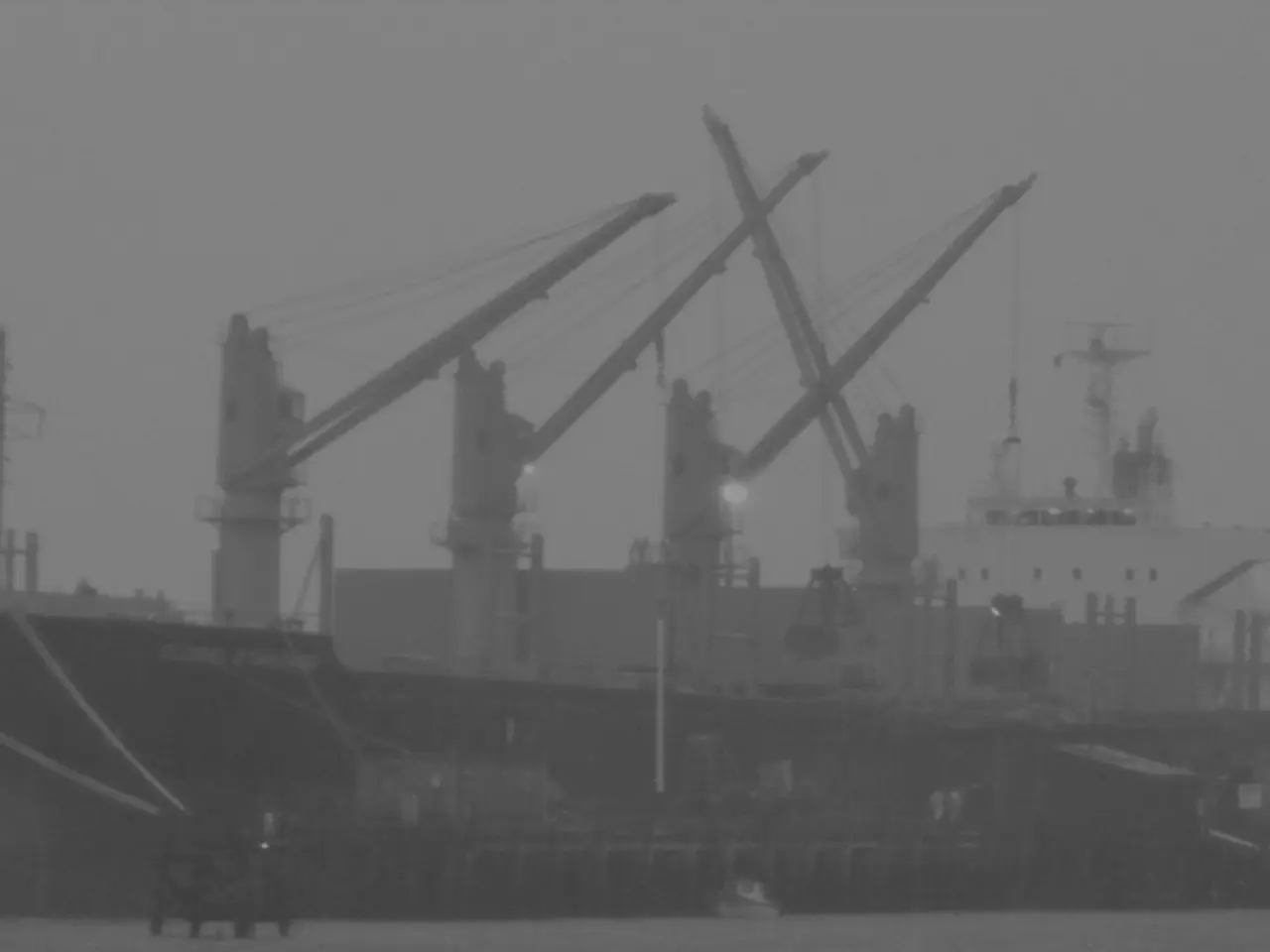Thyssenkrupp's stealth ships cost too much for Australia, leading to their decision not to purchase them.
In a significant move, Australia has selected Mitsubishi Heavy Industries (MHI) over Germany's Thyssenkrupp for the contract to build eleven stealth Mogami-class frigates. This decision marks a departure from Japan's post-World War II policy of military restraint and signifies a shift in its approach to arms exports [1][3][5].
The choice was largely influenced by the superior capabilities and technological fit of the Mogami-class frigates for Australia’s strategic naval needs. Key factors included advanced stealth features, multi-role functionality (anti-submarine, anti-aircraft, anti-surface warfare), reduced crew requirements, and scalability to enhance future capabilities [3].
Geopolitically, Australia has a strong strategic partnership with Japan, which played a significant role in the decision. The deal marks Japan’s largest defense export since World War II, signaling deepening military and diplomatic ties. Cooperation with Japan also complements Australia's AUKUS pact with the US and UK, aimed at strengthening its undersea and surface naval capabilities against regional threats [1][5].
Technically, the Mogami-class frigate is an upgraded design that emphasizes stealth, operational flexibility, and technology that reduces manpower needs by nearly half compared to the aging Anzac-class frigates it will replace. The Mogami platform allows for integrated weapons systems and modular future upgrades, which were critical considerations for Australia's long-term naval modernization [3].
The program envisions initial shipbuilding in Japan followed by transfer and construction of most vessels in Australia, supporting domestic job creation and industrial capability expansion, which was an important economic and sovereign industry consideration [3].
The announcement of this deal has potential implications for the regional balance of power. It is expected to bolster the strategic partnership between Australia and Japan and aims to strengthen security policy between the two countries, particularly in countering China's naval power [2][4].
In summary, Australia's choice favored Mitsubishi Heavy Industries because of:
- Superior stealth and technological capabilities relevant to Australia's maritime defense needs.
- Multi-role operational flexibility and reduced crew manpower requirements.
- Strong geopolitical and strategic alignment with Japan in the Indo-Pacific.
- Integration with broader defense initiatives including AUKUS.
- Economic benefits of local shipbuilding partnerships.
These factors collectively outweighed the offer from Thyssenkrupp Marine Systems [1][3][5].
Following the announcement of the deal, MHI's stock rose by 6 percent, reflecting investor confidence in the deal's potential [2]. The joint ship deal will provide mutual access to maintenance facilities, enhancing operational flexibility for both countries [1]. As the deal progresses, it will be interesting to observe the broader implications for the region and the evolution of Australia and Japan's defense and diplomatic relations.
References: [1] ABC News Australia. (2023, February 1). Australia chooses Japan over Germany for $40 billion frigate deal. Retrieved from https://www.abc.net.au/news/2023-02-01/australia-chooses-japan-over-germany-for-40-billion-frigate-deal/131706864
[2] Nikkei Asia. (2023, February 1). Mitsubishi Heavy Industries shares jump after Australia picks Japan for frigate deal. Retrieved from https://asia.nikkei.com/Business/Companies/Mitsubishi-Heavy-Industries-shares-jump-after-Australia-picks-Japan-for-frigate-deal
[3] The Sydney Morning Herald. (2023, February 1). Why Australia chose Japan over Germany for its $40 billion frigate deal. Retrieved from https://www.smh.com.au/politics/federal/why-australia-chose-japan-over-germany-for-its-40-billion-frigate-deal-20230201-p5cg3b.html
[4] The Diplomat. (2023, February 1). Australia-Japan Frigate Deal: Implications for the Indo-Pacific. Retrieved from https://thediplomat.com/2023/02/australia-japan-frigate-deal-implications-for-the-indo-pacific/
[5] The Japan Times. (2023, February 1). Australia picks Japan over Germany for $40 billion frigate deal. Retrieved from https://www.japantimes.co.jp/news/2023/02/01/national/australia-picks-japan-germany-frigate-deal/
What about the potential impact of this decision on sports in Australia? This selection might free up funds that could be allocated towards sports infrastructure or athlete sponsorship. Could this lead to Australia's sports teams showcasing improved performance due to an upgrade in resources?






